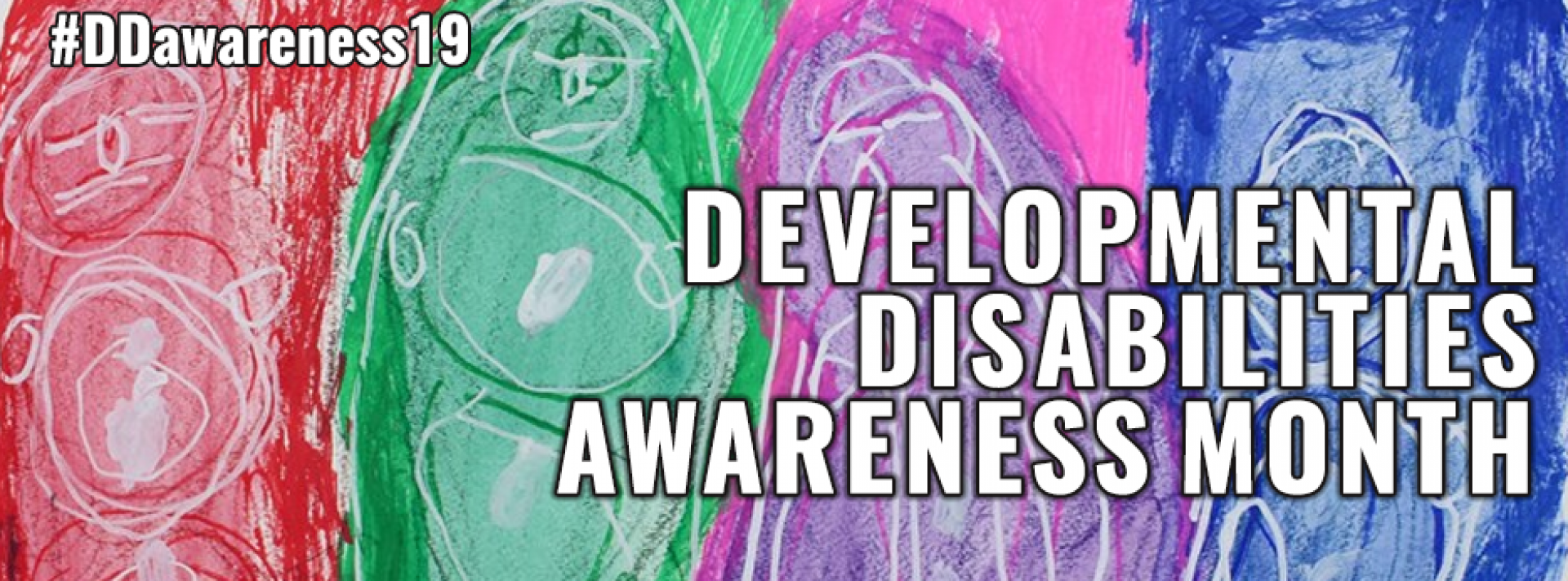Developmental/Intellectual Disability Awareness Month

Developmental/Intellectual Disability Awareness Month
March 2019
March 25, 2019
Location: KY
March is Developmental/Intellectual Disability Awareness Month
Estimates suggest, as noted by the National Association of Councils on Developmental/Intellectual Disabilities (www.nacdd.org), that more than 5 million Americans live with a developmental disability. Despite the prevalence of persons living with developmental/intellectual disabilities in our communities, it is a topic that is not widely understood. In 1987, President Ronald Reagan proclaimed March “Developmental Disability Awareness Month,” highlighting a cultural shift from exclusion to inclusion, spurred by the deinstitutionalization movement that began more than 20 years earlier with President John F. Kennedy’s 1963 Community Mental Health Act.
Developmental disability is a broader term that encompasses all functional limitations related to intellectual disability, physical disability, or a co-occurrence thereof, affecting areas of major life activity, including self-care, receptive and expressive language, learning, mobility, self-direction, capacity for independent living, or economic self-sufficiency. Intellectual disability adversely affects both a person’s cognitive function – reducing their ability to learn, reason, or problem solve – and adaptive behavior, negatively impacting their everyday social and life skills.
President Reagan’s proclamation sought to inspire all Americans to provide “encouragement and opportunities” for persons with developmental/intellectual disabilities – an effort aiming to better enable people to meet their goals and reach their full potential. “So many welcomed, needed changes have occurred over the past years and decades in how we perceive and respond to those with a developmental/intellectual disability,” notes Kim Henderson, Mountain Comprehensive Care Center’s Director of Developmental/Intellectual Disabilities Programs. “I think back to my own elementary school days when there was separation, labels and a lack of respect and dignity for those with a cognitive disability. We did not share a classroom, or gym time, or a lunch table. The separation of folks, the ‘other-ness,’ the lack of inclusion during instruction, recreation and social time only served to exclude more.”
Henderson continues, “The cultural changes I have seen in my lifetime inspire hope and faith in our humanity for all. The work towards community inclusion has benefited all of us – my life has certainly been more blessed for having known and worked with those with a developmental/intellectual disability.” While we’ve made great strides toward inclusion and creating better opportunities for those with developmental/intellectual disabilities, our society must continue to move forward – we must do more.
Art by Gary Murrel
